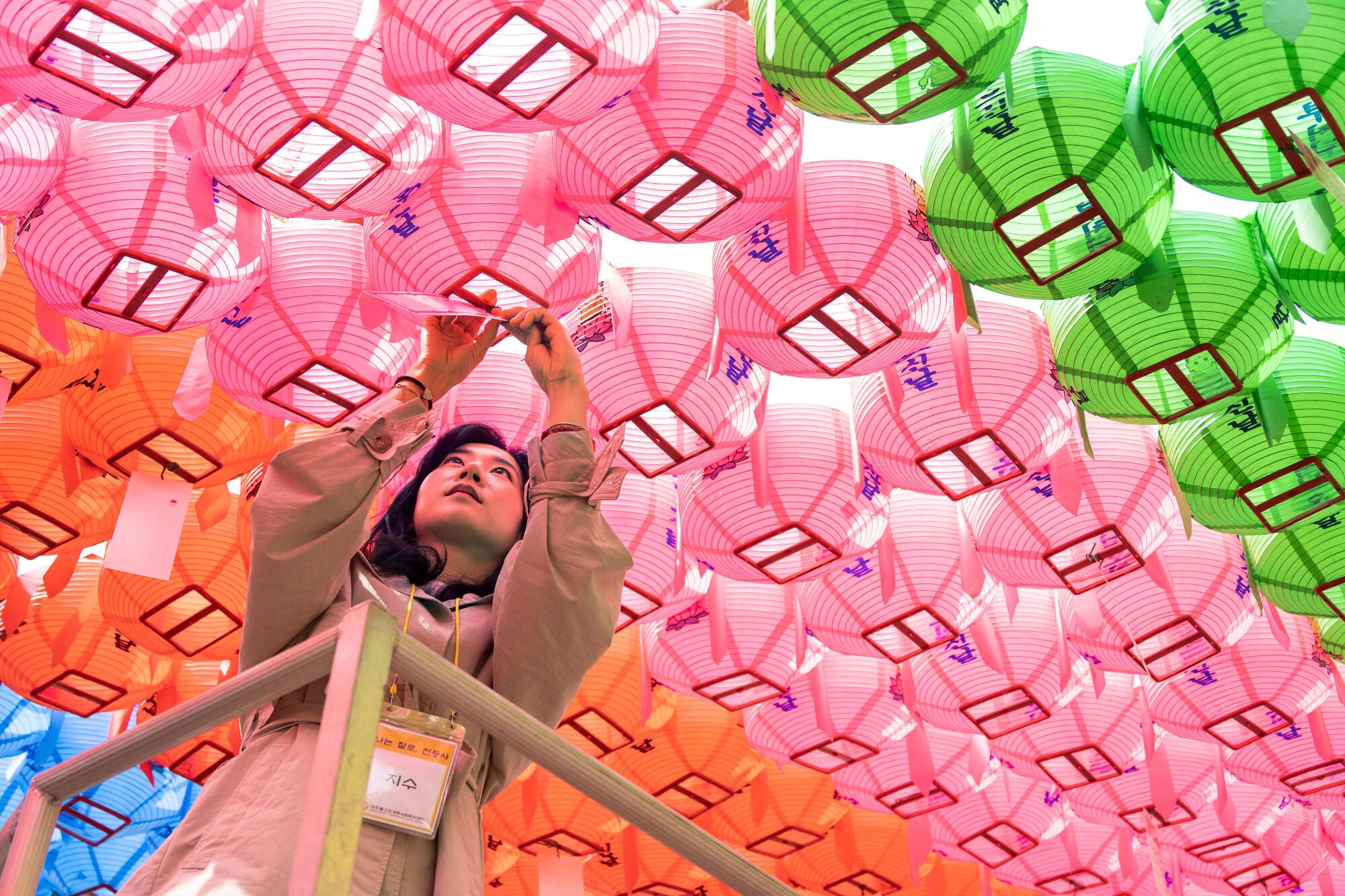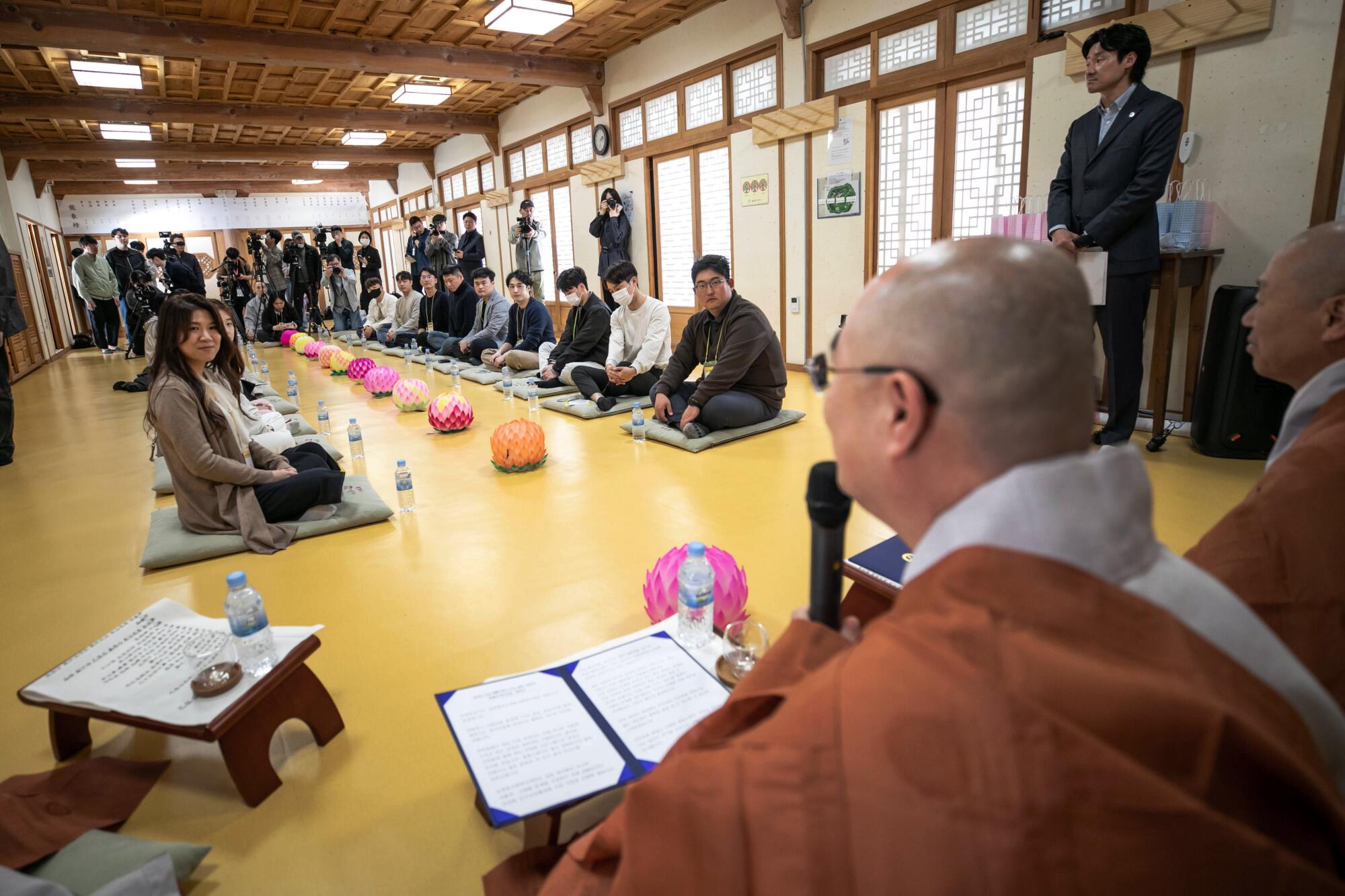GANGHWA ISLAND, South Korea —
Three monks, a horde of reporters and 20 singles looking for love walked into a Buddhist temple.
The singles sat on gray mats in the center of the temple’s study hall, visibly tense because the two dozen reporters crammed in the back were causing a small scene.
An irritated cameraman snapped at a competitor: “Can you get out of my shot?”
The three monks of the Jogye order — South Korea’s largest Buddhist sect, with around 12 million followers — looked on with placid smiles.
So began the third edition of “Naneun Jeollo” — or “To the temple” — a matchmaking event launched last year by the Korean Buddhist Foundation for Social Welfare to fulfill the religion’s commitment to fostering “social cohesion.”

Ji-su, a participant, hangs a wish note under a lantern.
(Jean Chung / For The Times)
One of the organizers reminded the participants of the weekend’s stakes: nothing less than the future of the country.
“I’m sure all of you have noticed how that day-care center in your neighborhood has one day turned into a nursing home,” he said, pulling up a computer slideshow titled “Aging Society.”
It showed that over the last two decades the number of babies born each year had been halved and that by 2050 the elderly would make up roughly 40% of the total population, straining the country’s welfare systems and deepening labor shortages.
The singles took in the figures with polite yet stony expressions.
“For the sake of the low birthrate,“ the presenter concluded in an upbeat tone, “all you have to do today is actively participate and find a good partner.”
: :
The Buddhists modeled the weekend after a matchmaking reality TV series called “I Am Solo,” which has produced eight marriages and gained a nationwide following.
This — along with the unusual premise of celibate ascetics taking on the challenge of worldly romance — has given the Buddhist version its own viral fame, which the foundation hoped to maximize by opening it to the press.
“We want to spread the word,” said Myo-jang, the monk who leads the foundation. “We’re hoping one day there will be an edition for every Buddhist temple in the country.”

Myo-jang, in the foreground, the president of the Korean Buddhist Foundation for Social Welfare, gives a speech to the participants in the matchmaking event as they start their two-day program at Jeondeung Temple.
(Jean Chung / For The Times)
The participants — 10 men and 10 women — had been told to expect some media, but not the film set’s worth of cameras that followed them into a courtyard for formal introductions.
“My mind is going blank,” said one of them, a 30-year-old who works in finance. “I thought there would be at most one TV crew.

